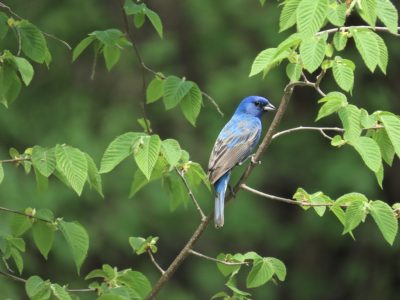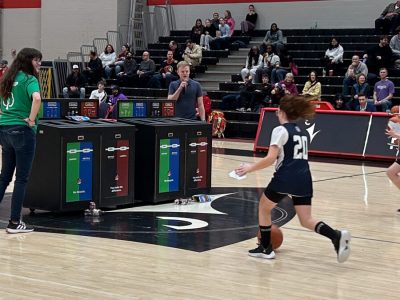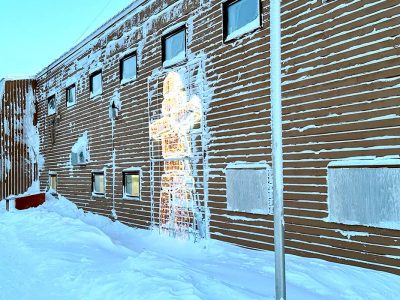“If you could see every bird in the world, you’d see the whole world.” – Jonathan Franzen, author
Did you know?
Birdwatching as a leisure activity has surged in popularity during the pandemic. Many people have turned to birdwatching for entertainment in their backyards or in public green spaces.
In the time of COVID-19…

The Great Blue Heron in the Rideau River at Carleton University. Photo Credit: Ian MacLatchy
Bird watching is the perfect activity while practising social distancing. Bird watching can help us become better stewards of our natural environment as it allows us to reconnect with nature, to be outside and expand our knowledge of nature.
With the increasing availability of online bird identification guides and smartphone apps, birdwatching is becoming widely available to everyone.
Nature-watching allows us to decompress and be mindful of our surroundings while also taking part in a fun and educational activity.
How to get started…
- Be prepared. Bring a good pair of binoculars, a notebook to keep track of the bird species, a bird app or a field guide to help identify the bird species, and a camera if you wish.
- Here are some suggested free birding apps or bird field guides: Cornell Lab of Ornithology’s Merlin ID App, Audubon Bird Guide App, The Sibley Guide to Birds.
- Get outside and pay attention to your surroundings. You can spot birds in any green space or open water source. It can be a backyard, a park, a small pond, a trail, a garden, or an open field.

Male indigo bunting. Photo Credit: Ian MacLatchy
Pro-Tips:
- Attract birds by putting up a bird feeder and birdbath in your backyard or common area, so you don’t have to stray too far from home.
- Be quiet and careful. Don’t make loud noises, sudden movements, and get too close or else the birds will fly away.
- Don’t disturb nesting birds, their nests, eggs, or baby birds.
- Listen. Follow the sounds of the birds’ songs and calls. Following a call may lead you to a flock of birds.
- Respect private and public property. Never disturb the environment, damage property, or leave garbage.
- Be patient. Bird watching is often about being patient and waiting for the birds to show themselves.
 Carleton University is committed to protecting and enhancing the biodiversity on our campus. One practical way to demonstrate this is the etched dot pattern on the exterior surface of the glass on our new buildings, as seen on the Health Sciences Building, to deter birds from colliding with the building.
Carleton University is committed to protecting and enhancing the biodiversity on our campus. One practical way to demonstrate this is the etched dot pattern on the exterior surface of the glass on our new buildings, as seen on the Health Sciences Building, to deter birds from colliding with the building.
Curious to learn more?
- eBird – For information on where to find birds, you can explore a region on the type of bird species in your area.
- Ottawa Naturalist Club – The Ottawa Field-Naturalists’ Club, founded in 1863 and incorporated in 1879, is the oldest natural history club in Canada. They provide tips on birding in the Ottawa area.
- Rideau Valley Conservation Authority – Rideau Valley’s recommended conservation areas to go bird watching.
Tuesday, June 16, 2020 in General, News, Sustainability Tip
Share: Twitter, Facebook



